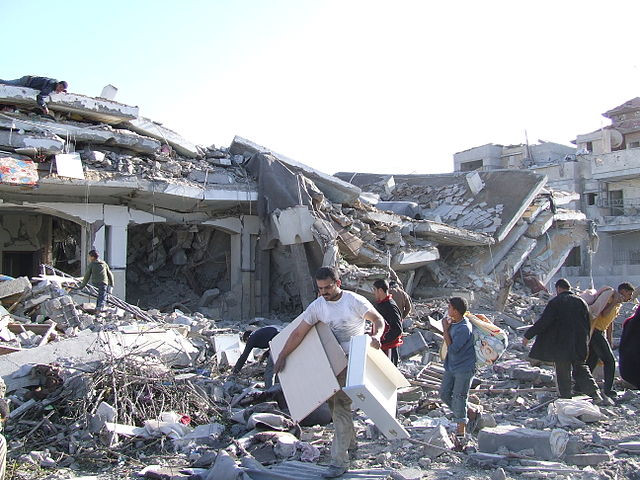Israel has halted all humanitarian aid into the Gaza Strip following Hamas' rejection of a ceasefire extension proposal backed by the United States, escalating tensions in the ongoing conflict. The Israeli government announced Sunday that it would not allow further deliveries of goods and supplies into the region until Hamas agrees to the proposed framework.
"With the conclusion of the first stage of the hostages deal and in light of Hamas' refusal to accept the [U.S. Mideast envoy Steve] Witkoff framework for the continuation of the talks, to which Israel agreed, PM Netanyahu decided: as of this morning, entry of all goods & supplies to the Gaza Strip be halted," the office of Israeli Prime Minister Benjamin Netanyahu said in a statement on X. The statement also warned that "if Hamas persists in its refusal, there will be additional consequences."
Hamas condemned the move, accusing Israel of using aid as leverage to force compliance. In a statement, the group called Israel's decision "cheap extortion, a war crime and a blatant attack on the [ceasefire] agreement," adding that it constituted "a continuation of the genocide against our people, as well as an act of blackmail targeting an entire population by depriving them of food, water, and medicine."
The ceasefire's first phase, which expired on Saturday, allowed for increased humanitarian aid and facilitated the exchange of hostages and prisoners. However, negotiations for a second phase stalled, with Hamas insisting on an Israeli military withdrawal from Gaza and a permanent ceasefire, conditions Israel has not agreed to.
Israeli officials have stated they support extending the truce through Ramadan and Passover, until April 20, under a U.S.-backed deal in which Hamas would release half of the remaining Israeli hostages on the first day and the rest once an agreement is reached on a permanent ceasefire. The Israeli Prime Minister's Office said Hamas' rejection of the deal was a violation of previous commitments.
Hamas officials argue that Israel has acted in bad faith, accusing it of failing to uphold its end of the agreement. Hamas insists that humanitarian aid should continue uninterrupted during the negotiations, alleging that Israel is manipulating the truce to maintain control over the conflict's terms.
Israeli Foreign Minister Gideon Sa'ar stated that Israel was open to further negotiations but emphasized that "there is no automatic transition between phases" of the ceasefire agreement. "As the first phase of the framework has ended-we have halted the entry of trucks into Gaza. We wouldn't do it for free," Sa'ar said at a news conference Sunday.
The decision to suspend aid comes amid worsening humanitarian conditions in Gaza, where aid groups warn of severe shortages of food, medical supplies, and other necessities. The enclave, which relies almost entirely on external humanitarian assistance, has seen a sharp increase in the price of goods following the aid suspension. Reports indicate that over 45,000 Palestinians have been killed in the war, which began after Hamas launched an attack on Israel on October 7, 2023, killing roughly 1,200 people and abducting more than 250. Hamas is still holding 59 hostages, 32 of whom are believed to be dead.
Israeli forces have maintained a presence in Gaza since the ceasefire began in January, with sporadic military operations continuing. According to the Hamas-run Gaza Health Ministry, Israeli military operations killed four people in Gaza on Sunday.
Meanwhile, pressure is mounting on both sides from international mediators. Qatar and Egypt, which helped broker the initial ceasefire agreement, have not commented on the latest developments. The Trump administration, which Israeli officials claim agreed to the aid suspension, has not publicly confirmed its role in the decision.
Adding to the mounting pressure, Hamas released a video on Saturday showing Israeli hostages in Gaza, including one freed captive bidding farewell to his brother, who remains in captivity. The video, authorized for media release by the hostages' families, was meant to emphasize the urgency of securing their release. The Israeli Prime Minister's Office condemned the video as a form of "psychological warfare."
During the first phase of the ceasefire, 25 Israeli hostages and the remains of eight others were released in exchange for 1,737 Palestinian prisoners, including 120 women and children. Among the released prisoners, some had been arrested following the October 7 attack, while others had been in Israeli custody for decades.




